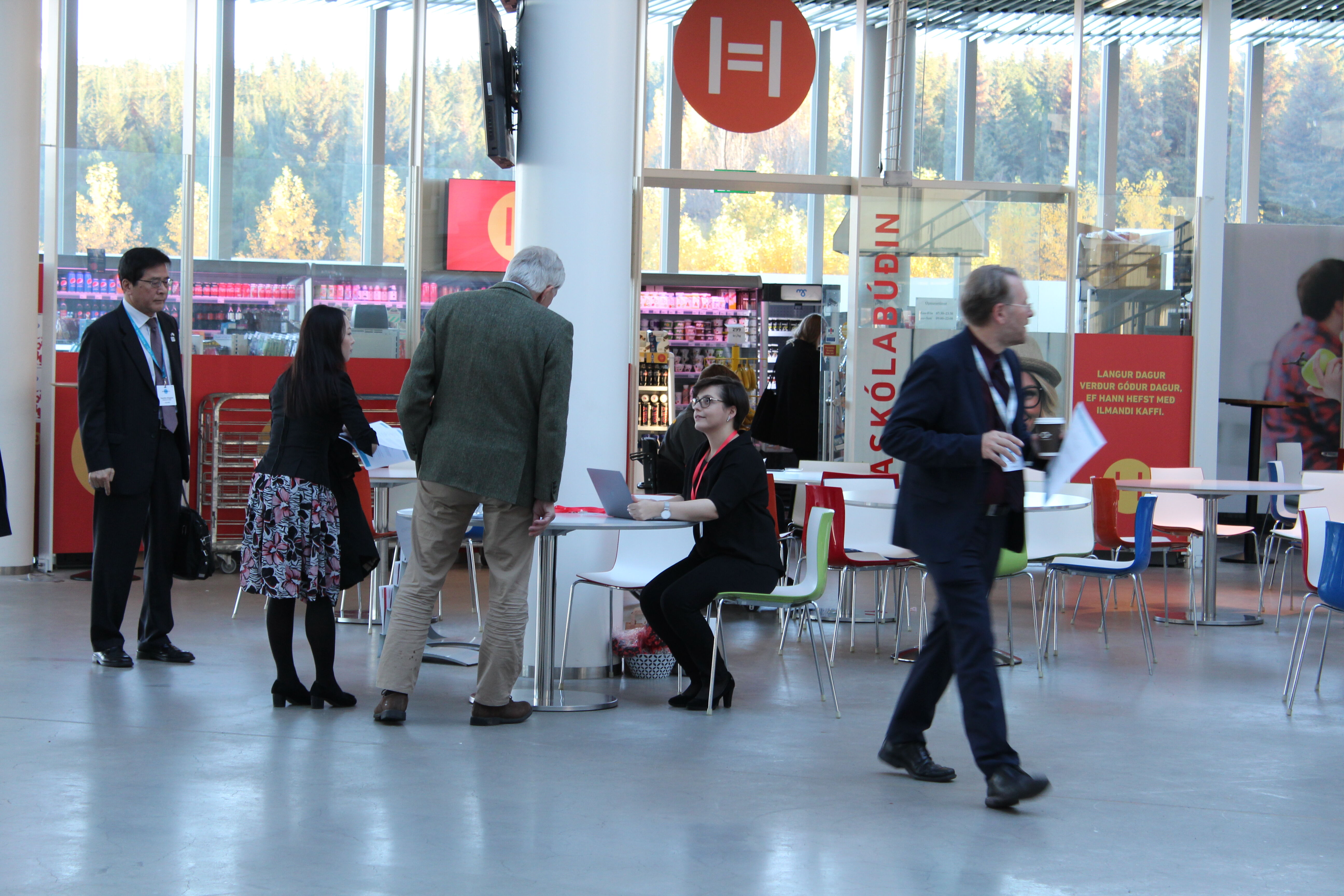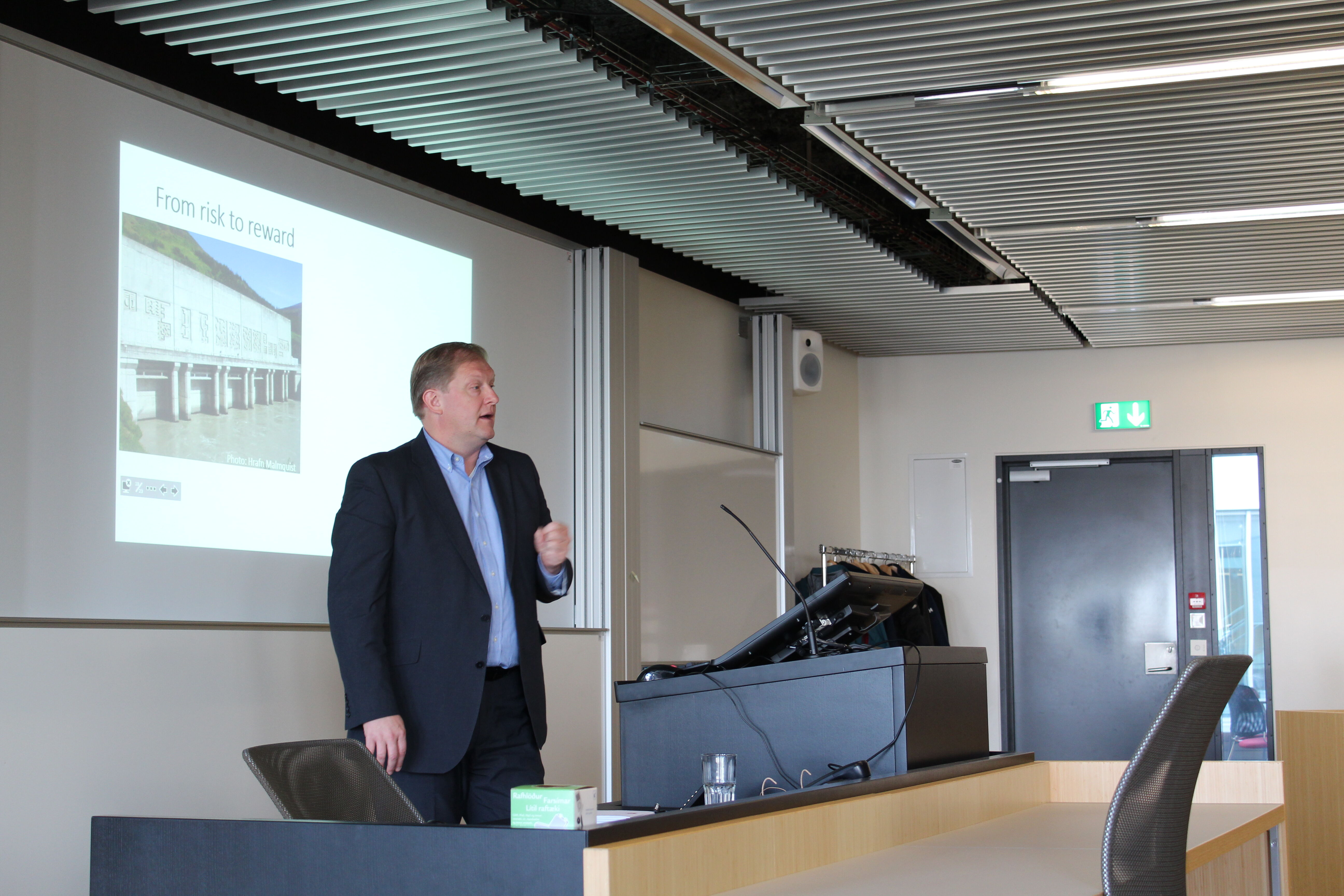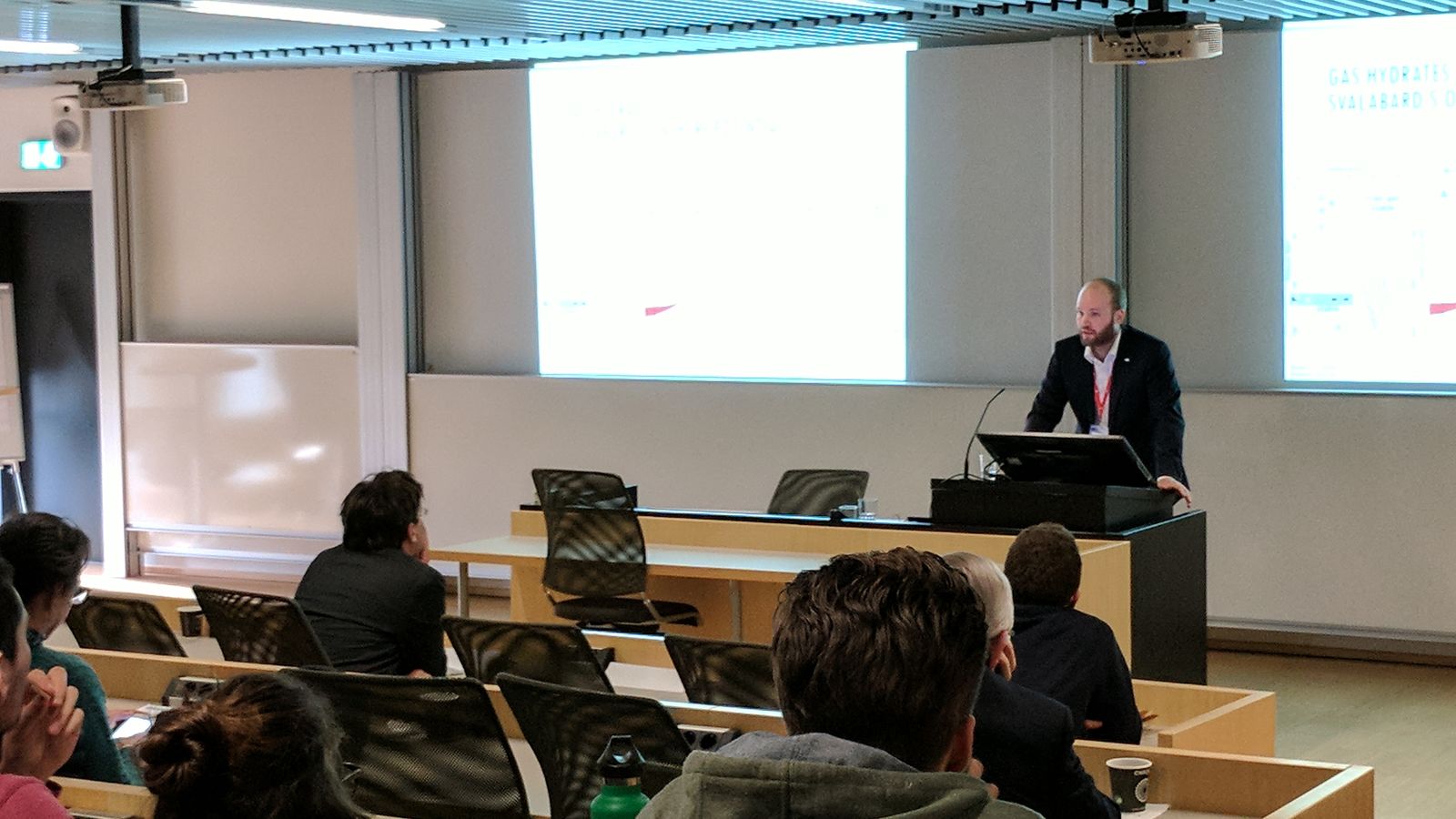ISE Workshop: Energy in the Arctic
ISE hosts the Energy in the Arctic workshop, kicking off the 2017 Arctic Circle Conference

REYKJAVIK, October 12 – In anticipation of the annual Arctic Circle conference held at the Harpa, ISE proudly hosted a workshop titled Energy in the Arctic - A Firsthand Perspective. With over 80 attendees, the event was very well received. Keeping true to the theme of the Arctic Circle, the workshop focused on the sustainable development of energy projects in the Arctic, as well as the research cooperation agreement between Québec and Iceland. Focus on this agreement sought to serve as an international role model for trans-border research. See the bottom of this article for the full itinerary of the workshop, along with links to all attendees and participating institutes.
As stated by Dr. Ari Kristinn Jonsson, Rector of Reykjavik University,
The arctic offers both great challenges and great opportunities in the decades to come. With the opportunity to build energy infrastructure, the challenge will be to address environmental and societal values while the guaranteeing the long-term well-being of those who live in these arctic environments, not just the corporations that invest in these projects. We must keep in mind also that the best solutions often come from unexpected places. We must not be stuck in our ways of thinking - innovation is key.

Ari opened the floor to the following speakers, addressing the topic and scope of the workshop and was followed by Robert Sauvé, president of Plan Nord. Robert discussed the aims of Plan Nord and their desire for ongoing international collaboration. Dr. Oli Sveinsson, Executive Vice President of Landsvirkjun then shined light on the energy sector in Iceland, explaining its current state and beyond. Dr. Juliet Newson, Director of the Iceland School of Energy then discussed sustainable energy from the educational perspective, highlighting what ISE is doing to foster the next generation of innovators, leaders and change-makers. This wrapped up the first session of the day.
In the second session, after the attendees and speakers stretched their legs, had some coffee and traditional Icelandic kleinas, the workshop resumed at full pace with a number of technically interesting talks. Dr. Hakim Nesreddine of Hydro-Québec discussed the status of integrated energy systems for off-grid arctic regions, followed by Dr. Árni Snorrason, Director General of the Iceland Met Office who shared with the attendees the opportunities and risks of arctic energy resources and the climate. Next, Prof. Jasmin Raymond of INRS delved into developing geothermal technologies in Nunavut and Adamie Delisle Alaku, Executive Vice-president of the Makivik Corporation finished the session off with sharing innovative Inuit approaches to sustainability for the development of Nunavut. From here, the conference took pause for lunch and resumed shortly after.
The third session look a french Canadian perspective, with representatives from various institutes in Quebec. Prof. René Therrien of Université Laval started the session off with a look at groundwater flow modeling in the Arctic, followed by Prof. Louis Fortier, the Scientific Director of L'Institut Nordique du Québec who shared with the audience his institutes role in Nordic development. The session was concluded with Dr. Maxime Claprood, Research Associate at INRS, who went into the details of stochastic reservoir modelling with limited wells and surface geophysical data. The workshop then took it's final coffee break before the final session.
 The fourth session of the Energy in the Arctic workshop featured ongoing research topics from current masters students at the Iceland School of Energy. Peter Betlem, M.Sc., started the session off by discussing his 3D thermo-baric modelling of central Spitsbergen and the implications for gas hydrate occurrence. Laurentiu Anton, M.Sc. Candidate then described his work in developing an artificial intelligence (AI) algorithm that suggests design modifications to radially connected regions of a transmission grid. The session was then concluded with M.Sc. Candidate, Enzo Diependaal, who shared his work in modelling for isolated (Arctic) mining and utility grids.
The fourth session of the Energy in the Arctic workshop featured ongoing research topics from current masters students at the Iceland School of Energy. Peter Betlem, M.Sc., started the session off by discussing his 3D thermo-baric modelling of central Spitsbergen and the implications for gas hydrate occurrence. Laurentiu Anton, M.Sc. Candidate then described his work in developing an artificial intelligence (AI) algorithm that suggests design modifications to radially connected regions of a transmission grid. The session was then concluded with M.Sc. Candidate, Enzo Diependaal, who shared his work in modelling for isolated (Arctic) mining and utility grids.
The Iceland School of Energy concluded the session by thanking all speakers and attendees for their cooperation and support and is looking forward to next years workshop.
Session 1
- Dr. Ari Kristinn Jónsson
Rector | Reykjavik University - Robert Sauvé
President, Chief Executive Officer | Plan Nord Corporation - Dr. Oli Gretar Sveinsson
Executive Vice President | Landsvirkjun - Dr. Juliet Newson
Director | Iceland School of Energy
Session 2
- Dr. Hakim Nesreddine
Researcher | Hydro-Québec - Dr. Árni Snorrason
Director General | Iceland With Office - Prof. Jasmin Raymond
Assistant Professor | INRS - Adam Delisle Alaku
Executive Vice-President | Makivik Corporation
Session 3
- Prof. René Therrien
Associate Dean for Research | Laval University - Teacher. Louis Fortier
Scientific Director | The Nordique Institute of Quebec - Dr. Maxime Claprood
Research Associate | INRS
Session 4
- Peter Betlem
M.Sc. | Iceland School of Energy - Laurentiu Lucian Anton
M.Sc. Candidate | Iceland School of Energy - Enzo Adrianus Johannes Diependaal
M.Sc. Candidate | Iceland School of Energy
